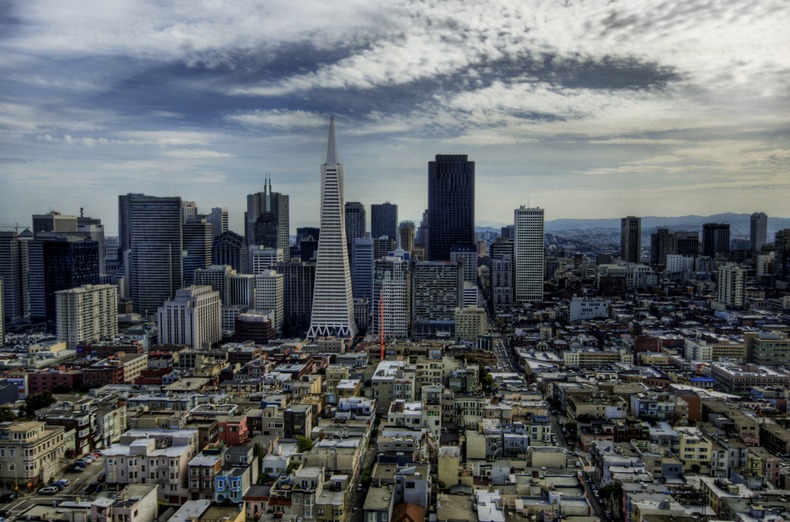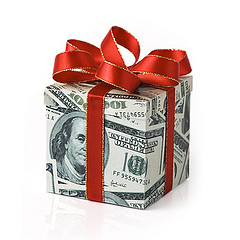 Author: Yale Bock, Y H & C Investments
Author: Yale Bock, Y H & C Investments
Covestor model: Long Term GARP
Disclosure: Long all stocks mentioned below.
The Long Term GARP portfolio had a difficult month, like the rest of the stock market. The sovereign debt issues of Europe continue to weigh on the market. The current environment reminds me a great deal of the year before the last Iraq war. However, the key difference is the inability of the various European leaders to come up with a plan to solve the problems plaguing the region.
The reality of the situation is the world will probably have to deal with a restructured Euro, with some nations leaving. In addition, there may have to be additional recapitalizations of banks, new deposit guarantees, and other remedies to help shore up the currency.
In the meantime, the portfolio holds companies which are very strong financially and we could see these management teams try to benefit from the continued weakness in the equity markets. In addition, many of these companies are buying back their own shares, making them more valuable in the future.
Here are some updates on key holdings.
Liberty Interactive (LINTA): Owner of QVC, Provide Commerce, Bodybuilding.com, Evite.com, Gifts.com, 40% of Lockerz.com, 34% of Home Shopping Network, 26% of Expedia.com, 26% of TripAdvisor.com, 30% of Interval Leisure Group, and 25% of Lending Tree. Lots of great assets here, and the company generates approximately $1.5 billion per year of EBITDA, and its debt is at low rates with some of it maturing in 2029 and 2030.
The business is not capital intensive and generates a great deal of free cash flow. Management has indicated over the next 3 years it will have about $5 billion of cash to find places to allocate, either through buying back shares, buying other companies, or adding to existing ownership positions.
Liberty Interactive opened a new market in Italy just last year and it is starting to gain traction, as revenues will likely exceed $50 million dollars in only the second year of operations, which is consistent with the development of current large markets like Japan, the UK, and Germany.
Growth internationally has been a development focus over the last few years but no announcements for new countries have taken place, but on the latest earnings call, QVC President Mike George said he expected an announcement on that front in the next few months. Target markets include China, France, Brazil, Spain, Canada, and Mexico. In fact, Liberty Interactive announced a joint partnership to open QVC in China with China National Radio.
In addition, Liberty Interactive owns 4 Internet based ecommerce businesses (Provide Commerce, Bodybuilding.com, Backcountry.com, and Celebrate Express (Buyseasons.com, Redenvelope.com, the Right Start)) which have over one billion dollars of revenue combined and almost $150 million of EBITDA per year. Look for management to add e-commerce businesses when they find an attractive candidate with good growth opportunities.
Another interesting development is Liberty management has bought back almost 20% of the shares outstanding in the last three years while reducing debt dramatically, and recently upped their share buyback authorization to $1 billion.
The management team at Liberty decided to break LINTA up into two tracking stocks, and that should take place by July 4, 2012, according to the conference call. Investors currently owning LINTA will get both tracking stocks upon issuance and when they start trading. Here is a link to the announcement, and which assets will comprise each tracking stock:
ICONIX (ICON): Owner of a broad range of well known brands like OP, Mossimo, Joe Boxer, Peanuts, and Sharper Image. They have a business model which outsources everything except licensing to the largest retailers in the world. In addition, they have partnerships set up to expand and grow their businesses in the largest emerging markets in the world-China, India, and Brazil.
They also grow through acquisitions and by using debt wisely. It will be interesting to see how the stock does as I would not be surprised If the company uses some cash to buy back shares-it has authorization to buy up to $200 million worth. The company also announced the closing of their joint venture in India.
Quest Diagnostics (DGX) – Quest Diagnostics is the largest health care diagnostic testing company in the United States, and the company’s most recent earnings release was better than expected. Quest announced the hiring of a new CEO, who started on May 1, 2012. He is Steve Rusckowski, formerly the CEO of Phillips Healthcare.
The company generates over a billion dollars per year in cash and has a non capital intensive business, which allows for management to search for acquisitions, make share repurchases, and raise the dividend. DGX recently increased their dividend by 70% in the last quarter.
Quest is in a great spot because 75% of all decisions by health care professionals is based on tests where Quest is a leader- blood, urine, fecal, cancer, heart, and Alzheimer’s. Quest also has started operations in India, so there are international expansion possibilities as well. In addition, domestically, the laboratory market is fragmented, so Quest can keep making bolt on acquisition to grow their already market leading position.
Intuit (INTU): Owner of the Quickbooks, Turbotax, Mint.com, and GoPayment businesses, INTU generates over a billion dollars per year in cash and almost all of it is free cash flow. The company is expanding its different businesses in different geographic regions, including the U.K., India, Canada, and Asia. The company instituted a 15 cents per quarter dividend in the 3rd quarter of 2011. The balance sheet is strong with debt and cash of about one billion each.
Intuit is another holding which has excellent growth possibilities, especially internationally. The payments and software as a service cloud architecture is really the focus, especially with the emergence of mobile devices. Businesses like Homestead.com (web hosting), Quickbooks, and GoPayment all should be able to slowly attract more businesses as each of them provides an entry to the Intuit platform, where additional services are usually attractive. The company recently reported earnings.
Starbucks (SBUX): Largest coffee and tea company in the world, expanding the business into juice, as well as growing the presence in China.
Liberty Media (LMCA): Another stock of Liberty Media, the assets inside the holding company structure include Starz Media, the Atlanta Braves, 40% ownership of Sirius Satellite (SIRI), almost 20% ownership of Live Nation (LYV), 16% ownership of Barnes & Noble (BKS), and a few other non controlling positions of small public and private.
Starz generates about $300-$400 million of cash flow per year and has little debt, and LMCA has almost $2.5 billion of cash (after debt considerations, $1 billion), so there is much to be speculated as LMCA has plenty of firepower to do what it wants to do. In late May, Liberty announced it planned to take control of Sirius.
VCA Antech (WOOF): Second largest owner of animal hospitals in the United States, also owns the laboratories for diagnostic testing of animals. The most recent earnings report showed very nice growth, for the first time in a few years, and they bought a few more hospitals.
IAC Interactive (IACI): Owner of Ask.com, Match.com, Meetic, Service Magic, Vimeo, CollegeHumor.com, and the Daily Beast, among other web sites. The company reported another good quarter. The company has been buying back shares over the last few years, and recently instituted a $0.48 cents a year dividend.
Moneygram International (MGI): Second largest money transfer and bill payment company behind Western Union (WU). The position is really a private equity strategic investment as Goldman Sachs (GS) and Thomas Lee Partners own 75% of the common equity and eventually will want a much better return than where the stock price currently trades at.
Management has been growing distribution points of presence almost 20% per year and now has over 200,000 locations to offer services in all areas of the world, particularly in emerging markets like Russia, Brazil, India, and the Middle East. Management has also added mobile transfer to the portfolio. The stock has done very little for the last three years but the business is not capital intensive, is growing 5-8% per year, and at some point the majority owners would like to be able to monetize their positions. They reported a good quarter last week, but forward guidance was a bit tepid at only 8% revenue growth.
British Petroleum (BP): The largest explorer in the Gulf of Mexico and has exploration activities all over the world. The stock has been hammered on declining oil prices and concerns about their near term outlook. However, oil usage shows no sign of diminishing with China and India growing the number of cars on the road at rapid rates. The developed world is still 99% dependent on fossil fuels for energy, and the situation probably will not change for 30-40 years, so this is a company which is in a good situation for the future. The company recently announced it increased the dividend by 14%. Here is a link to their most recent earnings report:
Quidel Corporation (QDEL): Health care and diagnostic company which makes influenza tests and is expanding their product line into strep throat, graves disease, and other molecular assays. Their most recent earnings report was a bit weak and the stock has sold off a bit. It still should be well positioned for growth over the next few years because of a high fixed cost model with an automated manufacturing plant where incremental product yield very good margins. In addition, QDEL is adding sales force and infrastructure to support their additional product offerings.
Unilever (UL): A massive food company based in the UK that gets over half of its nearly $50 billion of sales in the emerging markets of Asia and Africa. The company pays a dividend of 3.7% and has the goal of doubling its sales by 2020. They announced good earnings recently, and a hike in the dividend by 8%. The share price has declined a bit because of the continuing saga that is the European debt crisis.



